“Bengaluru’s Drag Culture is popularised by its vibrant and inviting crowd,” says the ‘Dancing Queen of Bangalore’, Dark Fantasy. Agreeing to this, a relatively new Drag artist, Destiny Diva said, “It is the safest and the best city for LGBTQIA+ people.” While Dark Fantasy is a former wildlife conservationist, Diva is a neuroscientist who left his job in Bombay and came to Bengaluru, where he shall soon be pursuing his MD.
The month of Pride, that is June, is when the ‘Diversity, Equity and Inclusivity’ programs of several corporations start to function towards empowering the LGBTQIA+ community. Black Swan, the winner of Miss Dragalore 2018 and Go-Go X-Factor 2025, fears the dearth of bookings from July when the community will be forgotten until the next year.
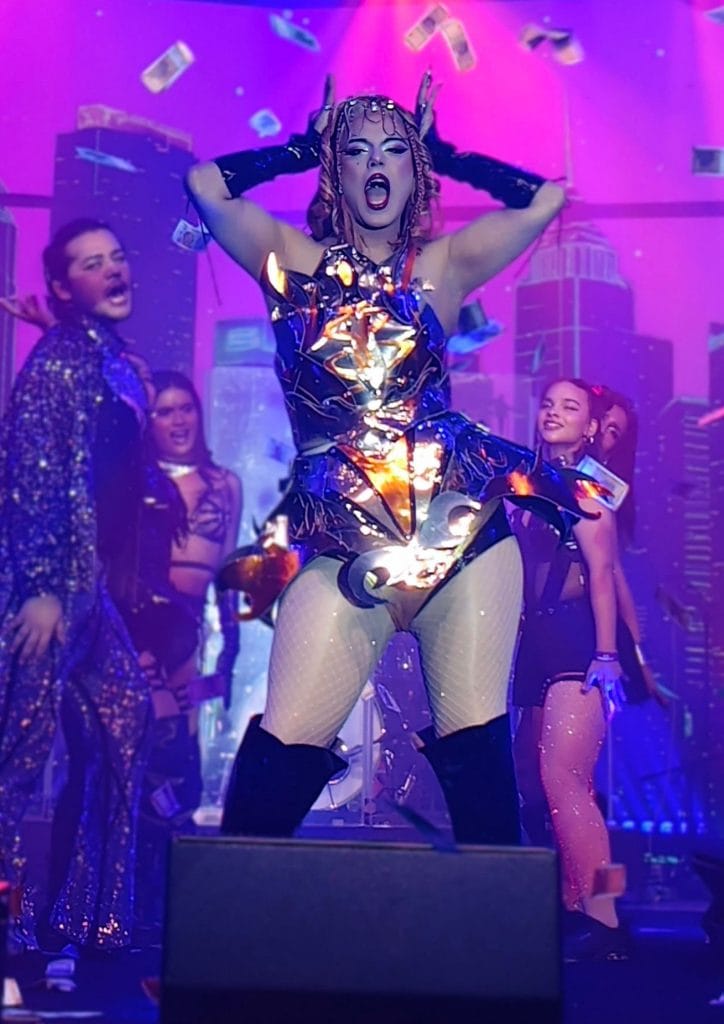
Amongst several platforms, Kitty Ko is the most prominent space that organises Drag Shows across the urban areas of India. The LGBTQ+ inclusive platform aims to harbour an open and safe space for the queer community in its events. Keshav Suri, the executive director of The Lalit Suri Hospitality Group, champions queer rights and has extensively worked towards providing a mainstream platform and normalising Drag culture in India. Even for him, Bengaluru is the most accepting and participatory in Drag culture.
It is presumed that all Drag artists are either transgender people or gay men. However, this goes against the very definition of Drag. Merriam Webster dictionary defines ‘drag’ as an entertainment where performers challenge gender stereotypes and wear elaborate and outrageous costumes. From this culture came the character of a ‘Drag Queen’ who is a person, generally a man, dressed in a female outfit while performing as an entertainer.
On the night of June 14, 2025, at an LGBTQ-themed show, AbsolutAlly Pride at The Lalit Ashok in Bengaluru, drag queen Rani Ko-HE-Nur was the show-stopper, while other artists, including Black Swan, Dark Fantasy, and Beyonce-the-Drag-Queen, mesmerised the audience. A strong sense of community, visibility, and pure art was palpable throughout the evening.
Drag: debunking the myths
“People think that all Drag artists are transgender people…I have had men ask me out. I often get proposals on social media, and I explain to them that I am a man,” said Dark Fantasy. There are several misconceptions about Drag culture and Drag Queens, given the little knowledge people have of queer communities and culture at large. The supposed origin of the word ‘Drag’ is from the 1800s when it was said that the stage actors who were men playing female roles wearing conventionally women’s clothes would “drag” on the floor behind them.
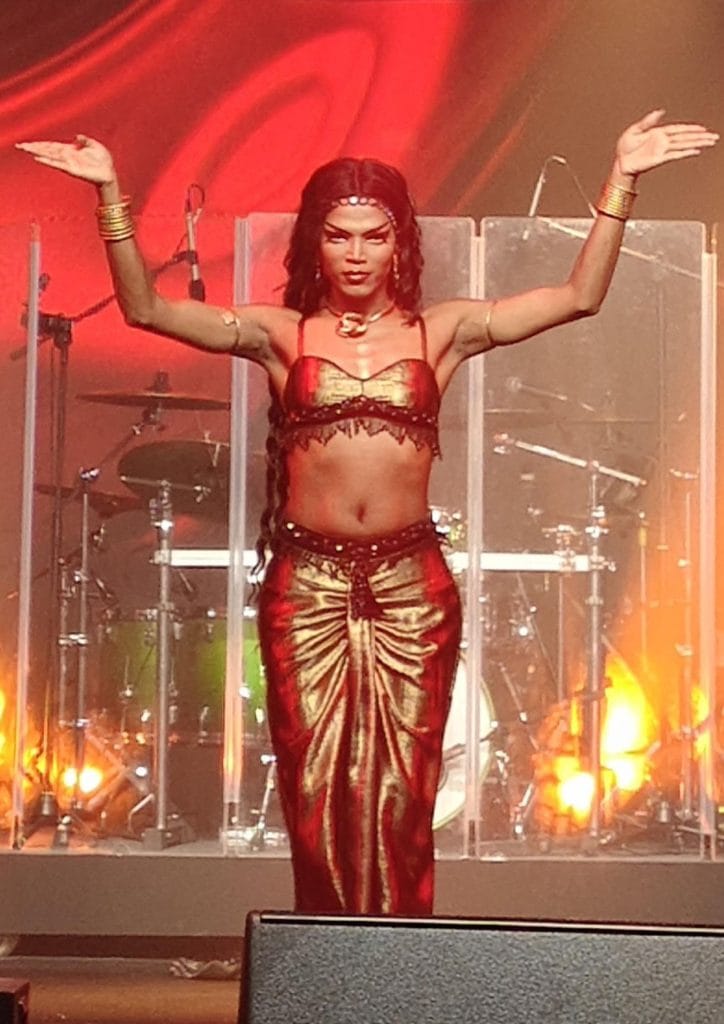
It is presumed that all Drag artists are either transgender people or gay men. However, this goes against the very definition of a Drag personality. Merriam Webster dictionary defines ‘drag’ as an entertainment where performers challenge gender stereotypes and wear elaborate and outrageous costumes. From this culture came the character of a ‘Drag Queen’ who is a person, generally a man, dressed in a female outfit while performing as an entertainer.
Another misconception is that Drag artists are bar dancers or “night-show performers”. It might come as a surprise that Black Fantasy is a wildlife conservationist by training, Black Swan is an IT Software Engineer, and Destiny Diva is a neuroscientist. These are just three artists from a large community who perform drag for the sheer joy of self-expression, celebration of one’s beauty and devotion to the art form.
Drag shows are not mere parties. Artists rehearse for hours, preparing for it. From conceptualisation to costume, lighting and choreography, they do it all, mostly by themselves. Dark Fantasy shared how his interest in styling began from a friend curling his hair. Gradually, he nurtured his passion for dancing by learning belly dancing professionally, leaving his job in a wildlife conservatory and pursuing it full-time. Now, he teaches dance to children at an IB School in Bangalore, while also teaching professionally and performing at least one drag show a month.
For Black Swan, the choice of songs is a very critical aspect of his performances. “Every song does not go with the person’s avatar, and the question remains – can I bring that on to the stage?” he said.
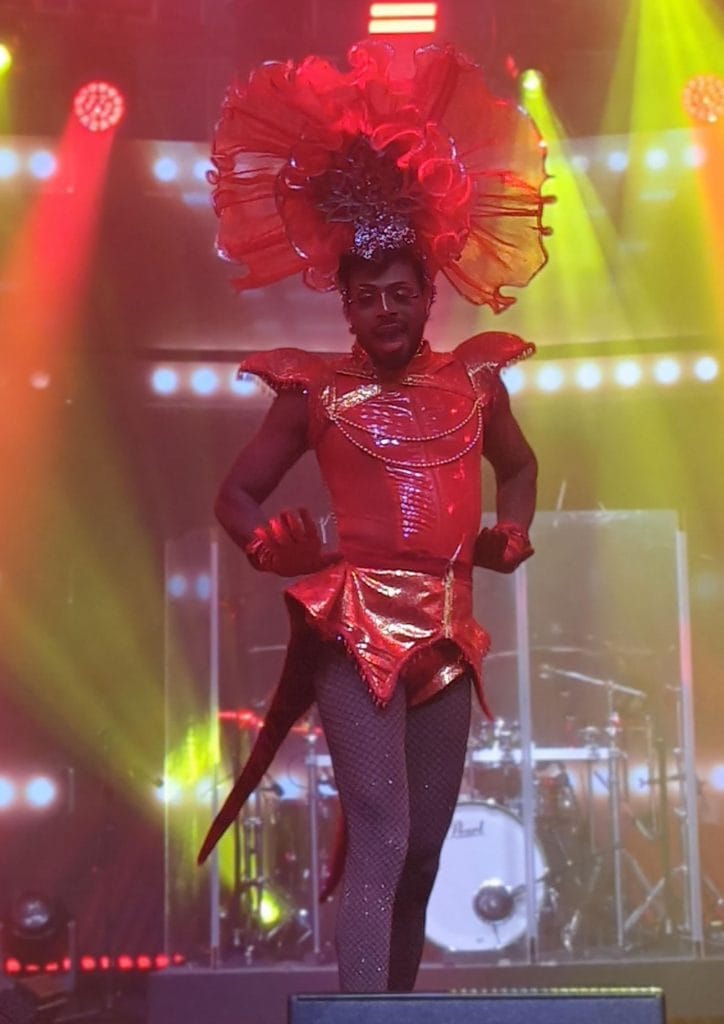
Both Dark Fantasy and Black Swan talked about the art of lip syncing with a lot of bodily movements, as it is essential to be mastered if one performs the conventional form of Drag. But there is no strict rule. Dark Fantasy incorporates his training of belly dancing, and Destiny Diva choreographs classical ensembles as they trained in the art form for three years. On the other hand, Black Swan is untrained in any creative art form, and he believes, “everybody is artistic by birth, and they don’t get to showcase it”. He is looking forward to taking classes in Indian classical or semi-classical dancing.
Queering together: the great sexual awakening
‘Perspective-taking’ is the ability to engage in thinking about and understanding others’ thoughts and experiences, through partaking becomes important to combat different types of prejudices. James Penney quotes Sara Ahmed in his book, ‘After Queer Theory’, to say that if orientation is a matter of how one resides in space, then sexual orientation is also a matter of residence and about how, with whom, and what we inhabit the space with. What is political is the queer subject’s capacity to orient themselves through mediums, encounter, hegemonic, or non-normative ways. Drag culture is one such form of expressing dissent to the established norms of society, which has little understanding of queer communities as compared to other minority groups, given that there are fewer opportunities to learn about them through both formal education as well as intergroup contact. This is unfortunate as both history education and intergroup contact help in building understanding and empathy.
Drag events represent more than just urban Bengaluru’s nightlife. It is representative of a form of Queer Empathy Zone where members from the community and supporters come together to practice ‘Queer Joy’.
Drag events represent more than just urban Bengaluru’s nightlife. It is representative of a form of a Queer-Empathy Zone where members from the community and supporters come together to practice ‘Queer Joy’. Queer Joy is described as a form of resistance to oppression in the face of adversity by celebrating queerness, and it is an experience as a result of queerness and not despite it. All three artists talked about how the ‘Drag community’ at large has its politics and differences, but for them, Bengaluru’s culture has been very supportive. However, Dark Fantasy expressed concerns over Drag artists not knowing their worth and failing to demand a fair wage for the fear of being replaced by another who would desperately take the show for a lesser sum.
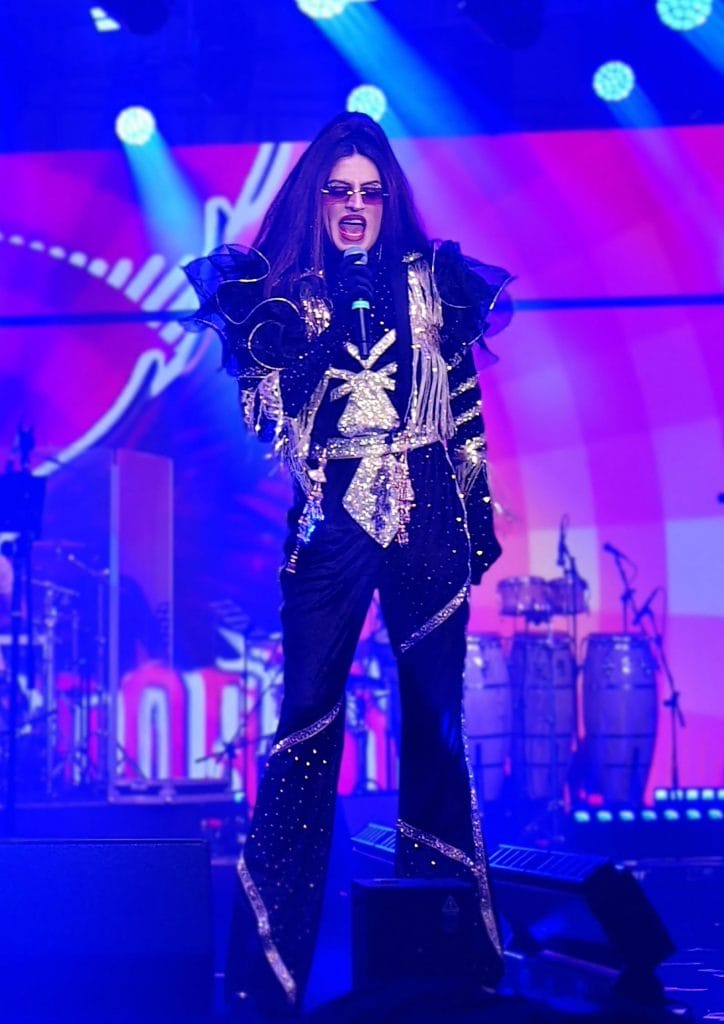
Destiny Diva also highlighted the prevalent nepotism and preference for only established artists by the corporations. After the decriminalisation of Section 377 in India, the occurrence of these events and their marketing have soared and become more visible. This has given local drag queens newfound opportunities and respect for continuing their art, earning a livelihood and providing the attendees a chance to be themselves without inhibition, discrimination or guilt, even if it is just for the night. Drag events are also where many undergo a ‘collective sexual awakening’, and this phenomenon is called ‘Queering-Togetherness’.
Dark Fantasy is fluid in his understanding of gender and sex. He says, “A person can be straight for six months and then just not be so anymore. This is totally fine…Drag events are not merely hook-up parties, which, sadly, even queer persons believe them to be. It is a celebration of their free expression.” Similarly, Destiny Diva talked about how Pride never ends. He said, “Pride is all year for us! Being queer is not limited to June, as it may be for businesses.”
But Dark Fantasy also looks at decriminalisation as just one step. While enquiring about the end goal of this interview, he said, “We don’t need more visibility. We are everywhere. What we need is normalisations of our presence and assimilation with the larger society.” Lamenting about how publications often approach him for interviews and then fail to either produce an article or share any revenue earned from its publication, he questioned, saying, “What is the ground-level impact of this? Nothing is happening for the betterment of the community.”
For him, what such media houses should instead do is add specific days in their yearly calendars for inclusivity-related activities, invite Drag artists for their parties, workshops or talks and not use them as a token for their CSR initiatives.
No room for hate
When asked if they have been the target of hate and abuse, whether on social media or in real life, It was astonishing how all three of them had never faced an unwelcoming audience and similarly, other than a few, “normal unsolicited DMs“, as said by Dark Fantasy, their social media presence has also been free of criticism.
Black Swan added, “That is how we started when we started our journey. Instagram was the first medium where we started posting our pictures. We got fans, more recognition and more offers for shows. We cannot go back to the communication of the 1990s. Social media is our best supporter”. He further said, “My followers are more genuine and are a part of the community itself, so they know or have themselves dealt with such situations and would not put it on another person.”
Destiny Diva proudly said, “All I do is ask- Are you a doctor? Are you a professor? Are you a trained classical dancer? Are you a Drag? No, right? So you are not allowed to speak.” In a befitting reply to all the haters whom Destiny Diva says, “I have only one life and I don’t want to waste it on negativity. I don’t give importance to that man because I know my worth.”
About the author(s)
Second year student of Media Studies at CHRIST (Deemed to be University), BRC, Bangalore. A trained Kathak dancer, theatre artist and political nerd.



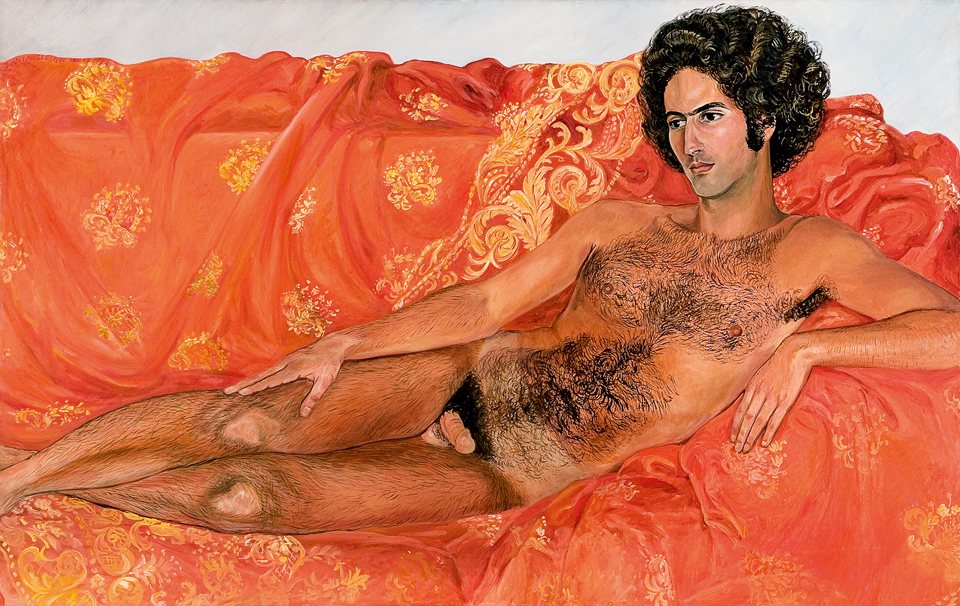
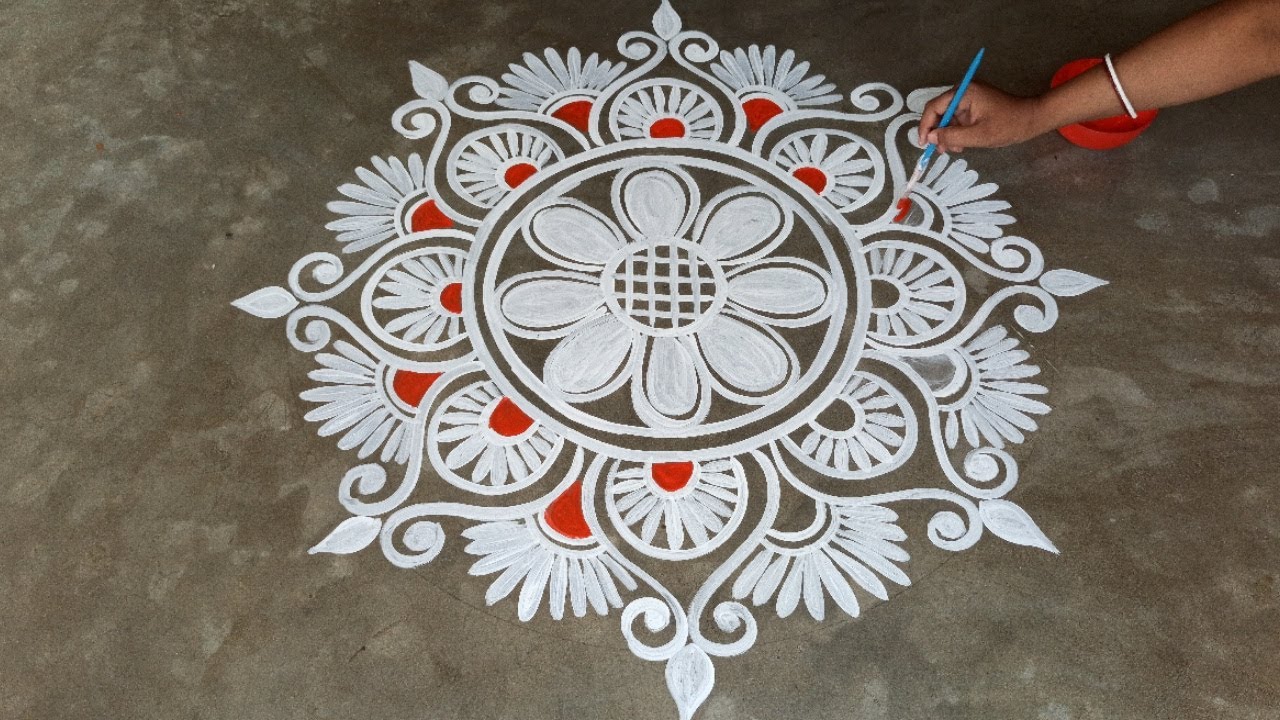

I appreciate you sharing this blog post. Thanks Again. Cool.